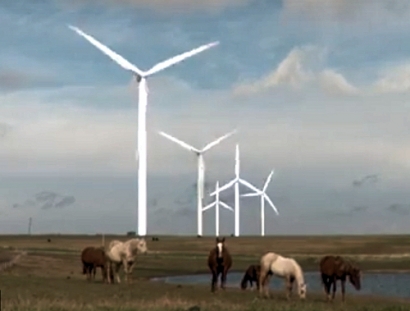
The $2.3 billion Grain Belt Express project has been rejected by the Missouri Public Service Commission twice, in 2015 and 2017.
The project, one of the longest transmission lines proposed in the United States, would carry about 4,000 MW of wind energy from western Kansas, cross Missouri and Illinois, and ultimately reach into Indiana where it would connect to the power grid serving the populous and energy-hungry eastern U.S.
The Missouri Public Service Commission denied the permitting request filed by Clean Line Energy the first time saying the project's backers failed to show the transmission line was needed or would provide a public benefit.
Undeterred, the Clean Line Energy went ahead and got nearly 40 Midwestern cities to sign on as potential customers. Then, in 2017, it sought commission approval again.
This time, four of five commissioners said they would grant the permitting request, but couldn't due to a ruling by the Missouri Western District Court of Appeals that said, in a case involving another transmission line proposal, that county commissioners in each affected county would have to give the project their blessing before it could go forward.
On Tuesday, former Missouri Governor Jay Nixon, who backed the project when he was in office and is now a private attorney, argued the commission's latest decision was based on an “erroneous interpretation” of the court ruling that stymied the transmission line plan, and ran contrary to more than 70 years or precedent.
According to Nixon, Missouri law carves out two permitting options -- issuance of certificates to construct electric lines and to receive franchises.
Clean Line Energy is seeking the first, but not the latter, and only the latter, granting a franchise to service customers directly, requires pre-approval from local governments, the former governor said.
To interpret the law otherwise would lead to a “myriad of other permissions making it impossible” to build a power line, Nixon told the court.
Attorney Paul Agathan, representing landowners opposed to the power line, told the seven-member panel of judges that Clean Line Energy's proposal is effectively a franchise request, and therefore should be subject to pre-approval.
A group of landowners is opposing the project because they fear it will diminish their property values and could be an eyesore.
Mark Lawlor, Clean Line Energy’s vice president of development, said Missouri’s regulatory approval is essential for the project to go forward.
“Transmission lines and infrastructure unfortunately are really hard to do in this country,” Lawlor told reporters outside of court.
“The big projects like this that have happened have often taken a decade and a lot of persistence. We’re still confident we can make it work,” Lawlor said.
The court did not give any indication when it will rule.
For information: Grain Belt Express Clean Line

